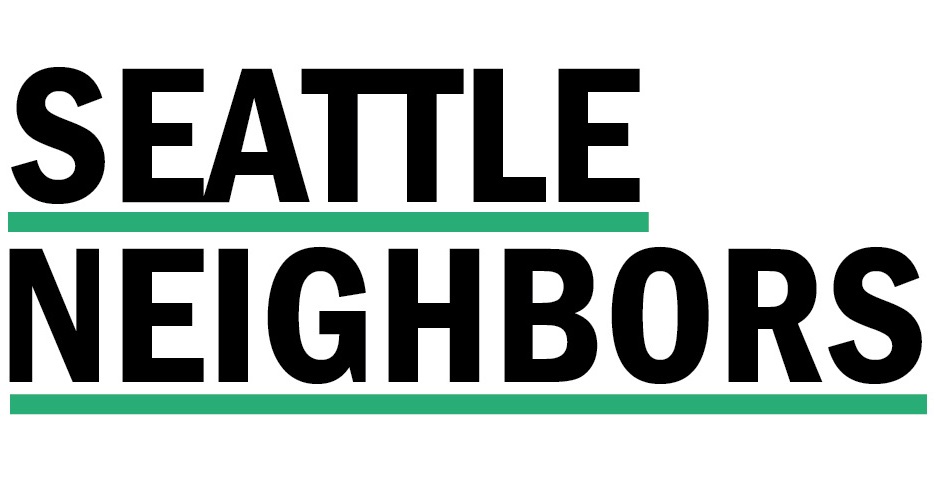KAY
Fifth grade teacher. Mom of a teen.
"I've lived in Seattle since 1997. I first lived in a daylight basement apartment that was, we'll say, not quite sanctioned. After that, my husband and I bought this house. We've been here for almost 20 years now. We feel incredibly fortunate that we were able to get into a house at that time because the housing market has skyrocketed so much since then. We were in our late 20's and just at the beginning of our careers. It was a stretch for us at the time. But now, if we were in an analogous position in our careers, there's no way we could have gotten into the housing market. There's no way. We knew that we wanted to have a family, so we wanted to have a house we could grow into a little bit. We now have a 15 year old.
I grew up in DC, where my parents and my brother remained.
The three of us had been in conversation for many years over what appropriate choices we could make for long-term care for my brother because he really needs to live with family. My husband and I said ‘yes, Doug should come live with us.’ We learned about Detached Accessory Dwelling Units (DADUs, or backyard cottages) and we investigated. We were like, ‘that would be the perfect thing.’ It gives us a little autonomy, so we can all kind of live as a tiny little community instead of all under one roof. We made sure there were built-in bookshelves, so that there would be a place for all of Doug’s books because he loves fantasy.
Some people feel that backyard cottages are inconsistent with how they want their neighborhood to feel. I feel really pretty strongly that as a city, if we want to become affordable and sustainable for more people, we can't just rely on high rises. This is an easy way for us to add just a little bit of density here and there to meet the family needs of the people in Seattle.
As we were building this, I was like, I really hope the neighbors are cool with us building this second house in our backyard. What the neighbors mostly say: ‘I want one of those in my backyard! That would be great for my kid or that would be great for a rental.' Half the guys who worked on building it were like, ‘Do you need a renter? This is so cool. I could live in here. It's just big enough for me and my wife.’
For us, it’s an investment that pays off emotionally and financially. I feel like it's an investment in family. It's an investment in the neighborhood. It's an investment in the city.
I think there's more and more families living together for different reasons, people getting creative with their property. This situation allows us, as a family, to provide support for one another. It really is super important for him and for me and my peace of mind. This is a way that we can take advantage of our property, you know? Use it to our family's best advantage…
Kay and her brother Doug stand in front of their backyard cottage.
My brother doesn't drive. It's one of the nice things about this location for sure; easy access to the public transit.
I teach fifth grade. One of the great things about the school that I work at is that I work 4 miles from my home. We've made very intentional choices in our family life about energy and carbon footprint and things like that. We've got solar panels on the DADU and the main house. We drive electric cars.
I feel like part of teaching, for me is I want to contribute to the community that I live in. The closer I can teach to where I live, the more engaged and connected I feel with the students. Seeing your students in the community and seeing what they become, it's like, ‘Success! Victory!’ They're doing awesome things. I really enjoy that and I feel like it's a way that I can invest in my own community. Living nearby gives an emotional connectedness with the community that I think is missing if you're teaching further from home.
If we don't keep affordable housing in the forefront of our thinking about city planning, we're going to end up being a less diverse city. That would be culturally to our city's detriment. I think that backyard cottages need to be an option that people can have on the table for their living situations. It's a great way for us to add density without changing the fundamental character of our neighborhoods. It's a way that we can keep it a neighborhood-y feeling, without having to go through so much additional development and really changing the architecture of our city. I think that when done well, these backyard cottages just add to the value and character of our neighborhoods. If homeowners have a large enough plot to support having an additional house on it, that should be something that they're allowed to do. It takes advantage of the transit that's already in place. All of the things that are already in place, just get used more effectively, you know."
home is a house with a backyard cottage for her brother with disabilities.
We are #SeattleNeighbors. Seattle needs more homes, of all shapes and sizes, for all our neighbors.


